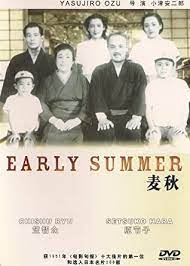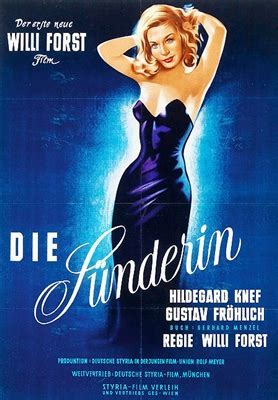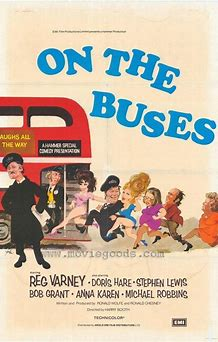At least at the time of writing, the subtitling of
Criterion’s version of Ozu’s Early Summer contains an intriguing error,
taking a reference to its key character Noriko’s enthusiasm for “Hepburn” to
refer to Audrey (who wasn’t even yet famous when the film was made) rather than
the longer-established Katharine. Whereas the “Audrey” interpretation would
have seemed to connote no more than “style icon” fandom, the corrected
“Katharine” version carries more complex connotations, suggesting a reference
point in an ongoing project of self-determination, and at least a flavour of
greater sexual ambivalence. Accordingly, Noriko (Setsuo Hara) is a happily
single 28-year-old woman, intrigued by marriage as a discussion point with her
friends, but showing little personal desire to end her own status. When, despite
all this, the pressure to marry becomes insurmountable, Noriko confounds
everyone by choosing a man who hadn’t even asked her, without even discussing
it with him, leaving it to his mother to tell him the news. He’s doesn’t appear
again in the film, not even through numerous scenes where Noriko discusses her
choice with family and friends and prepares for her departure; the other man
who wants to marry her, her family’s preferred choice, is never seen at all.
Ozu’s quiet radicalism in this respect doesn’t diminish over time; for example,
it’s still a challenge to prevailing discourse when Noriko won’t even
acknowledge to her best friend that what she feels for her future husband is
love, preferring to use terms like “trust.” In so many physical and figurative
respects, the film is defined by absences as much as presences (including a
brother who never returned from the war and has never been officially
pronounced dead), and at the end, so calmly that it’s almost shocking, the
tight-knit family of the opening scenes has become dispersed, happy hubbub replaced
by a quiet both soothing and deadly. Overall, it’s one of Ozu’s fullest works, formally
and thematically inexhaustible throughout.




